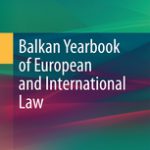‘Force majeure certificates’ issued by the Russian Chamber of Commerce and Industry
The Russian Chamber of Commerce and Industry is issuing ‘force majeure certificates’, like some of their homologues in other countries, as discussed earlier in this blog. Although this practice has existed in Russia since 1993, the number of requests for the certificates has recently increased. The requests come not only from Russian companies but also from foreign entities. While the increase is understandable in these times of the coronavirus pandemic, under Russian law, the ‘force majeure certificate’ can (only) form a part of evidence in possible future disputes, as its impact on the outcome of the dispute is ultimately defined by the (Russian or foreign) courts or arbitration tribunals.
The Russian Chamber of Commerce and Industry (CCI) is issuing ‘force majeure certificates’, like some of their homologues in other countries. Although this practice exists in Russia since 1993, the CCI has recently noticed an increase in the number of requests for the certificates, due to the coronavirus pandemic. The requests come not only from Russian companies but also from foreign entities. What could be the practical value of the certificate in a contractual dispute relating to the consequences of the pandemic?
The legal basis for the CCI’s competence to issue the ‘force majeure certificates’ is laid down in the law ‘On the chambers of commerce and industry in the Russian Federation’ of 7 July 1993. Article 1 of the law defines the CCI as a non-state non-governmental organisation created to foster business and international trade. Along with other competences, the CCI may act as an ‘independent expert’ (art. 12) and may provide information services (art. 2) in matters relating to international trade. One of the services is the issuing of ‘force majeure certificates’. The Rules for issuing the certificates are defined by the CCI’s governing council. These Rules entrust the CCI’s legal department with assessing requests and advising whether the certificate should be issued. The advice is given on the basis of the documents that a party submits to substantiate their request, following the Rules.
Notably, the list of documents includes (a copy of) the contract, ‘which contains a clause on force majeure’ (point 3.3.2 of the Rules). This requirement is not accidental; it has to do with the non-mandatory character of the legal provision on force majeure. Article 401(3) of the Russian Civil Code provides for exoneration of liability for non-performance of a contractual obligation, if the party proves that the non-performance was due to the force majeure. This provision applies by default, if ‘the law or the contract does not provide otherwise’ (art. 401(3)). The parties may provide otherwise by including a clause about unforeseen circumstances, hardship, frustration, force majeure, or similar circumstances in the contract. This is, at least, the way Russian courts have applied art. 401(3) up to the present time. The Russian CCI does not appear to deviate from this approach. More than 95% of the requests submitted to the Russian CCI for ‘force majeure certificates’ have so far been rejected, according to the head of the Russian CCI (even though some decrees deliberately label the COVID-19 pandemic ‘force majeure’ as, for example, the Decree of 14 March 2020 does, this decree is adopted by the municipality of Moscow to prevent the spread of the virus by various measures of social distancing).
Thus, the legal basis of the CCI’s competence to issue a ‘force majeure certificate’ implies that the certificate is the result of a service provided by a non-state non-governmental organisation. The application of Article 401(3) implies the need to interpret the contract, more specifically, the provision on force majeure it possibly includes. If the parties disagree on the interpretation, a dispute may arise. The competence to resolve the dispute lies with the courts or arbitration tribunals. In this way, the ICC’s decision (taken upon the advice of the CCI’s legal department) to confirm by issuing a certificate that a particular event represents a force majeure in the context of the execution of a specific contract can have persuasive authority in the context of the application of Art. 401 (3). However, it remains the competence of the courts or arbitration tribunals to apply art. 401(3) to the possible dispute and to establish the ultimate impact of the relevant events on the outcome of the dispute. Under Russian law, one would treat the ‘force majeure certificates’ issued by the CCI (and possibly a refusal to issue the certificate) as a part of evidence in possible future disputes. A (Russian or foreign) court or arbitration tribunal considering this evidence is free to make a different conclusion than that of the Russian CCI or may consider other evidence.



